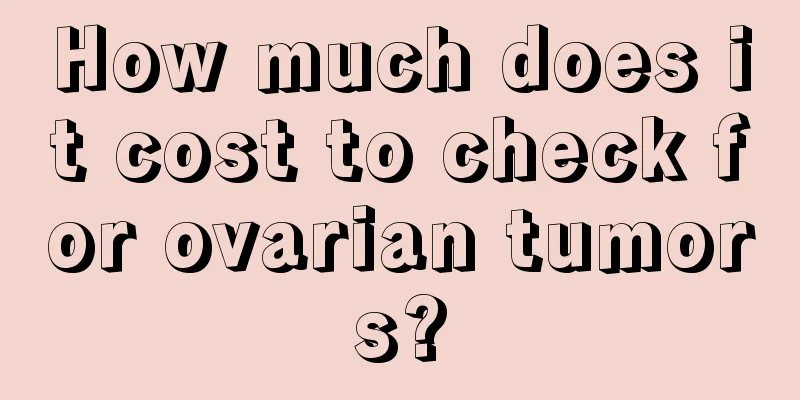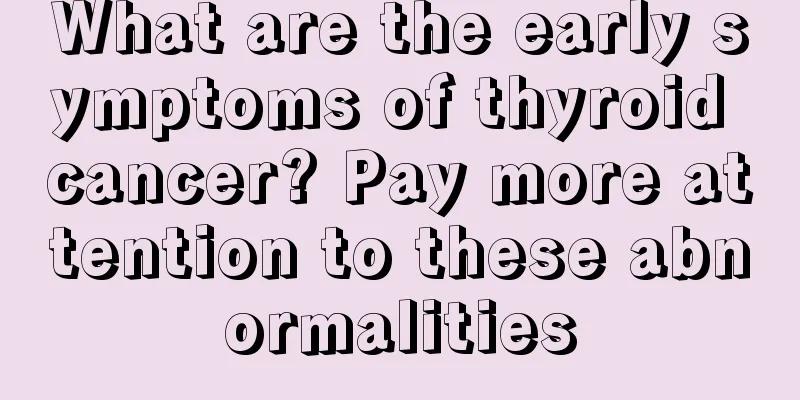Hyperthyroidism caused by subacute thyroiditis

|
There are many causes of hyperthyroidism. Some people may develop hyperthyroidism if they do not receive timely treatment after suffering from subacute thyroiditis. Subacute thyroiditis is a relatively common thyroid disease that can lead to endocrine instability in the human body. In daily life, if we feel dizzy, we must conduct relevant examinations in time, which is very helpful in relieving subacute thyroiditis. So, what should we do if subacute thyroiditis causes hyperthyroidism? 1. Early days The onset is usually sudden, with fever, accompanied by chills, fatigue, weakness and loss of appetite. The most characteristic symptom is pain and tenderness in the thyroid area, which often radiates to the submandibular area, behind the ear, or neck. The pain worsens when chewing and swallowing. The range of thyroid lesions varies, and may start in one lobe and then expand or transfer to another lobe, or always be limited to one lobe. The affected glands are enlarged, hard, and painful. When the lesions are extensive, a large amount of thyroid hormone and non-hormonal iodinated protein in the follicles are temporarily released into the blood. Therefore, in addition to the general manifestations of infection, common manifestations of hyperthyroidism may also occur. 2. Mid-term When thyroid hormones in the thyroid acinus are depleted due to infection and destruction, before the thyroid parenchymal cells are repaired, the serum thyroid hormone concentration may drop to the level of hypothyroidism, and clinically it may turn into hypothyroidism. 3. Recovery period The symptoms gradually improve, and the goiter or nodules gradually disappear. In many cases, small nodules remain and are slowly absorbed. If treated promptly, most patients can recover completely, and only a few develop permanent hypothyroidism. In mild or atypical cases, the thyroid gland is only slightly enlarged, with mild pain and tenderness, no fever, and mild systemic symptoms. Clinically, there may not be any signs of hyperthyroidism or hypothyroidism. The course of this disease varies in length, from a few weeks to more than half a year, generally about 2 to 3 months, so it is called subacute thyroiditis. After the disease is relieved, it may relapse. |
<<: What can I eat if I have hyperthyroidism
>>: Tips for treating swollen eyelids due to hyperthyroidism
Recommend
How to grasp the best time to treat lung cancer? You should know these common sense about lung cancer treatment
For lung cancer, people should pay attention to g...
How to quickly deal with crab allergy
Summer should be the best time to eat seafood. Ho...
How to prevent breast cancer metastasis?
The rare metastatic sites of breast cancer are lu...
What are the functions and effects of baking soda toothpaste?
Toothpaste is an indispensable daily necessity in...
How long can an elderly person with colorectal cancer live
How long can an elderly person with advanced colo...
Can dental floss remove tartar?
Everyone knows that dental health is directly rel...
Early symptoms of female teratoma
Intraspinal embryonic tissue ectopic tumors devel...
4 points to note when caring for lung cancer patients with postoperative cough
Lung cancer patients have severe cough after surg...
What's wrong with sunken eye sockets
Some people's eye sockets are deeper than oth...
What are the early symptoms of nasopharyngeal carcinoma in children
Nasopharyngeal carcinoma in children is a maligna...
What is the cause of the red papules
As the weather gradually gets warmer, there are m...
What are the effects of washing your face with rice water
Some people may like to use facial cleansers to w...
Treatment of Gallbladder Cancer
Early detection, early diagnosis, and timely radi...
Are high heels harmful to health?
I believe that many female friends have the exper...
What is the cause of Hashimoto's thyroiditis
If we talk about Hashimoto's thyroiditis, you...









